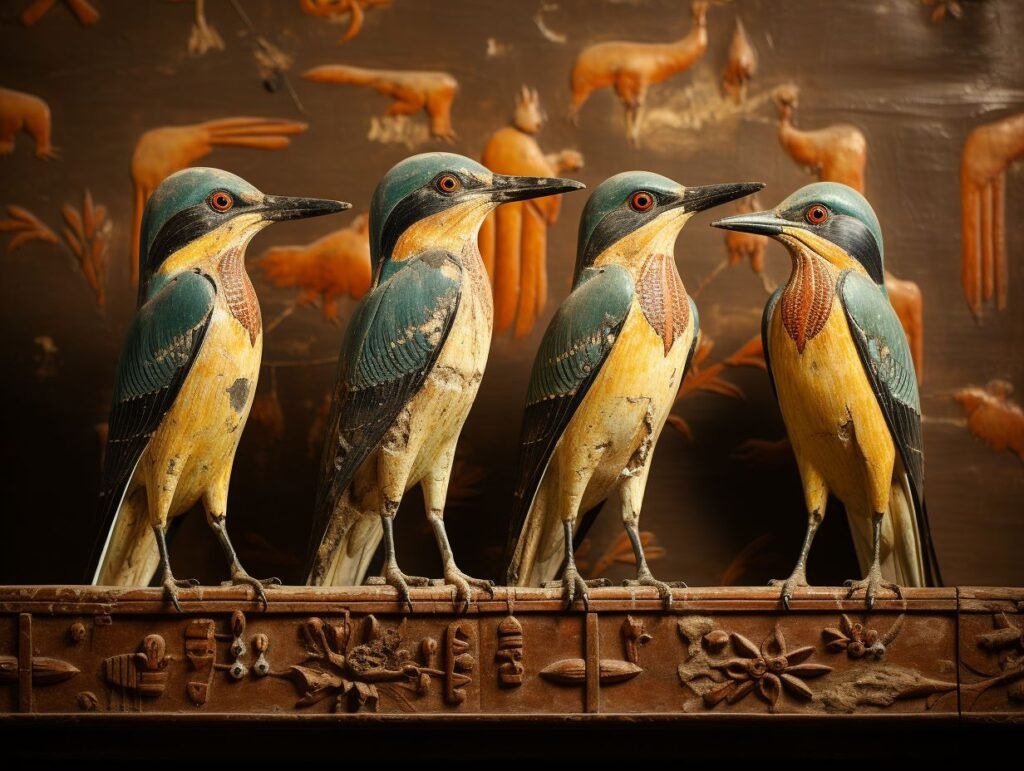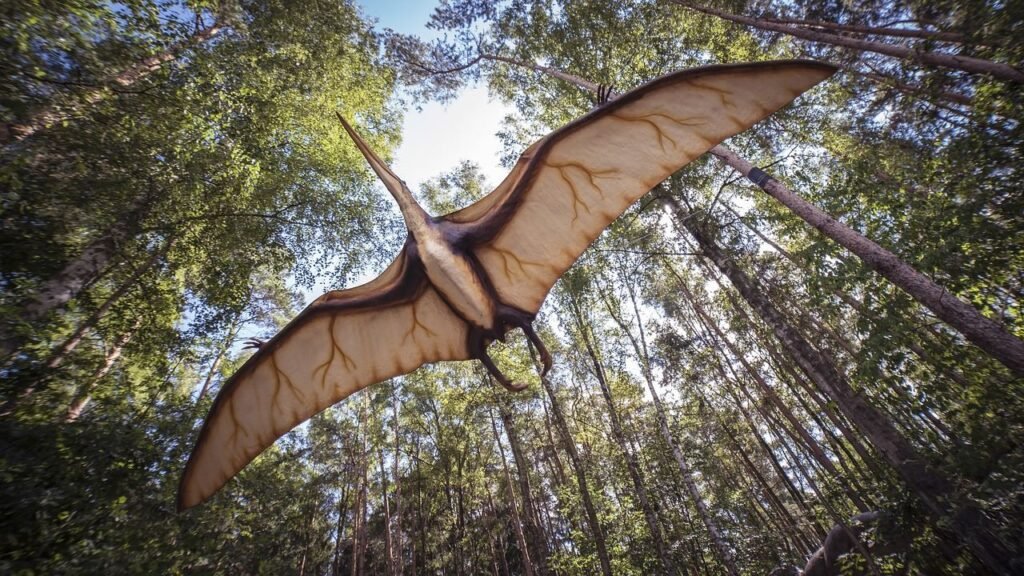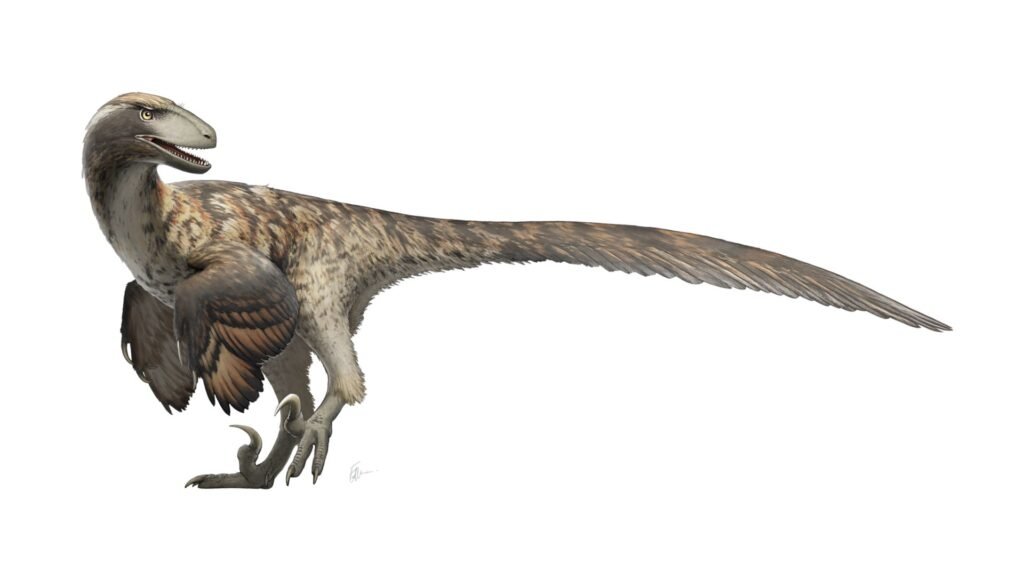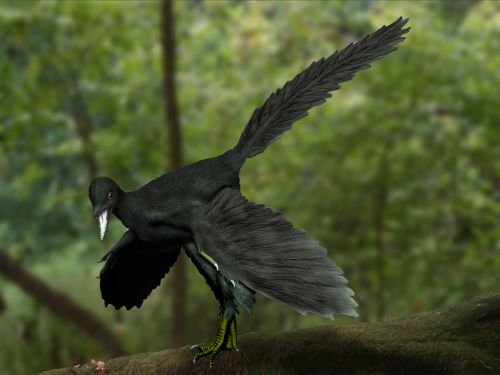The Amazing Story of Feathered Fossils
Birds are among the most diverse and widespread animals on Earth, with over 10,000 living species. But did you know that birds are actually living dinosaurs? That’s right, the pigeons, parrots, and penguins you see today are the descendants of the fearsome predators that ruled the planet millions of years ago.
How did this remarkable transformation happen? In this blog post, we will explore the fascinating fossil evidence that reveals how dinosaurs evolved into birds.
The Dinosaur Renaissance: A New View of Dinosaurs
For a long time, dinosaurs were thought of as slow, simple, and scaly reptiles that went extinct 65 million years ago. But in the 1960s, a series of groundbreaking discoveries changed the way scientists and the public viewed these ancient animals. This period is known as the “dinosaur renaissance”, and it marked the beginning of a new era of dinosaur research.
One of the most important discoveries was Deinonychus, a small, agile, and intelligent dinosaur that lived about 115 million years ago.
Deinonychus had sharp teeth, curved claws, and a long tail that helped it balance and maneuver. It was also a pack hunter, capable of cooperating with others of its kind to take down larger prey. Deinonychus showed that dinosaurs were not sluggish and solitary, but active and social creatures.
But Deinonychus also had another surprising feature: it had feathers. Yes, feathers, just like modern birds. Deinonychus was closely related to the group of dinosaurs that includes the famous Tyrannosaurus rex. This group is called theropods, and they are the ancestors of all living birds.
The Feathered Dinosaurs: A Link Between Dinosaurs and Birds
Deinonychus was not the only feathered dinosaur. In the past few decades, hundreds of fossils of feathered dinosaurs have been found, especially in China. These fossils show that feathers were not unique to birds, but evolved in dinosaurs long before the first birds appeared. Feathers probably had many functions, such as insulation, camouflage, display, and flight.
Some of the most stunning examples of feathered dinosaurs are Microraptor, Sinornithosaurus, and Caudipteryx.
Microraptor was a four-winged dinosaur that could glide from tree to tree. Sinornithosaurus was a venomous dinosaur that had long feathers on its arms and tail. Caudipteryx was a peacock-like dinosaur that had a fan of feathers on its tail and could run fast on its two legs.
These and other feathered dinosaurs show that the evolution of birds was not a sudden event, but a gradual process that involved many intermediate forms. They also show that many features and behaviors that we associate with birds, such as flight, intelligence, and sociality, were already present in their dinosaur ancestors.
The First Birds: A Breakthrough in Evolution
The first bird that we know of is Archaeopteryx, which lived about 150 million years ago. Archaeopteryx had a mix of dinosaur and bird features, such as teeth, claws, and a bony tail, but also feathers, wings, and a wishbone. Archaeopteryx is often considered the “missing link” between dinosaurs and birds, but it was not the only one. Many other early birds shared traits with both groups, such as Confuciusornis, Hesperornis, and Ichthyornis.
The evolution of birds from dinosaurs was one of the most remarkable events in the history of life. It involved many changes in anatomy, physiology, and behavior, such as the development of a lightweight skeleton, a high metabolism, and a complex brain. It also resulted in a great diversity of forms and functions, such as flightless, aquatic, and nocturnal birds.

The Living Dinosaurs: A Legacy of the Past
Today, birds are the only living dinosaurs.
They are the survivors of a mass extinction that wiped out most of their relatives 65 million years ago. They have adapted to almost every environment and niche on Earth, from the poles to the tropics, from the oceans to the mountains, from the forests to the deserts. They have also influenced human culture and history, as sources of food, companionship, art, and inspiration.
Birds are a testament to the power and beauty of evolution. They are a reminder of our connection to the natural world and its ancient past. They are also a challenge for us to protect and conserve, as they face many threats from habitat loss, climate change, and human activities. By learning more about how birds evolved from dinosaurs, we can appreciate them more and respect them better.
Conclusion: How Birds Evolved from Dinosaurs
In this blog post, we have seen how birds evolved from dinosaurs, based on fossil evidence and scientific research. We have learned that:
– Dinosaurs were not slow, stupid, and scaly reptiles, but active, intelligent, and feathered animals.
– Feathers evolved in dinosaurs long before the first birds appeared, and had many functions besides flight.
– The evolution of birds from dinosaurs was a gradual process that involved many intermediate forms and changes.
– Birds are the only living dinosaurs, and they have great diversity and importance in the natural world and human culture.
We hope you enjoyed this blog post and learned something new. If you did, please share it with your friends and family, and leave a comment below. And if you want to learn more about dinosaurs, birds, and evolution, check out these resources:
– [How dinosaurs evolved into birds | Natural History Museum](^7^)
– [How Birds Evolved from Dinosaurs | Scientific American](^8^)
– [The origin of birds – Understanding Evolution](^9^)




